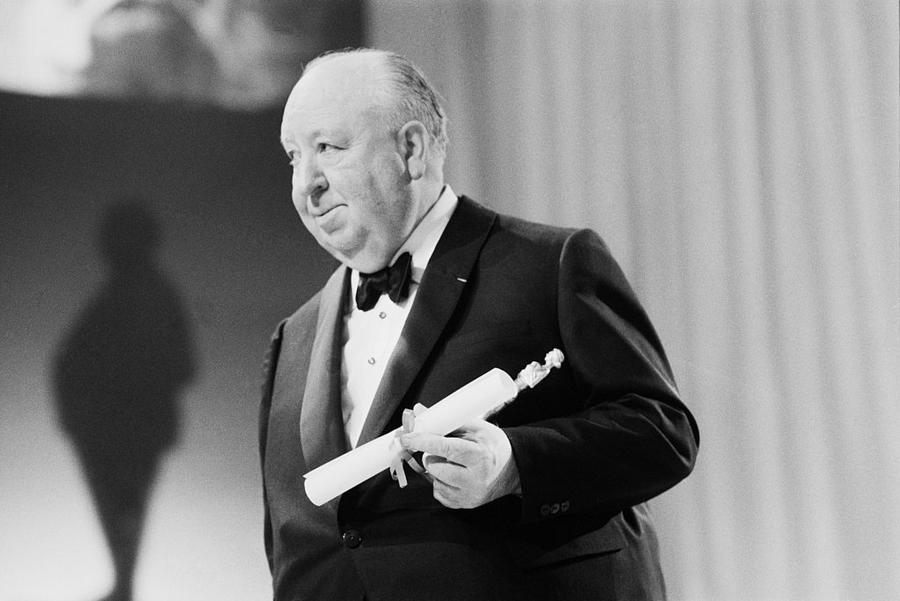When “Psycho” premiered in 1960, it didn’t just terrify audiences—it shocked Hollywood. With a cast led by Anthony Perkins and Janet Leigh, the film delivered one of the most iconic twists in movie history. The infamous shower scene. The chilling score. The audience screams. It redefined the thriller genre.
But behind the curtain, another kind of suspense was unfolding: Alfred Hitchcock was quietly pulling off one of the smartest business deals in film history.
At 61 years old, Hitchcock was already a legend. “Psycho” was his 49th film. He’d earned fame for classics like “Rear Window”, “Vertigo”, and “North by Northwest”. But “Psycho” was different—not just creatively, but financially. Instead of taking a hefty upfront fee, Hitchcock made a risky, brilliant bet on himself… and walked away with a fortune.
Getty
Before “Psycho”: Big Names, Modest Paychecks
To appreciate Hitchcock’s “Psycho” payday, it helps to look at what he earned earlier in his career:
For 1946’s “Notorious” (starring Cary Grant and Ingrid Bergman), he earned $7,000 a week. Filming lasted about 18 weeks, which totaled around $126,000—or roughly $1.6 million today.
By the 1950s, his fees had jumped. For “Rear Window” (1954), “The Man Who Knew Too Much” (1956), and “Vertigo” (1958), Hitchcock earned $150,000 upfront, plus 10% of the profits, and crucially, retained ownership of the negatives.
These were strong deals. But what he pulled off with “Psycho” would blow them all away.
The “Psycho” Gamble That Made History
“Psycho” wasn’t a sure thing. Shot in black and white on a tight budget using his television crew, the project was a passion play. Paramount didn’t want to finance it. Hitchcock, undeterred, decided to fund most of the movie himself.
He gave up his standard $250,000 directing fee (over $2 million today) in exchange for something unheard of at the time: 60% of the film’s profits.
It was a gamble that paid off… massively.
A blurb in Variety from September 21, 1960 summed it up best:
“Alfred Hitchcock could author a book on how he struck gold with a motion picture. It was disclosed in New York this week that the producer-director will walk away with a profit of at least $5,000,000 from his ‘Psycho’ entry… a tidy amount of coin for an enterprise that took about nine months of his time and effort.”
That $5 million was just the beginning.
“Psycho” became the highest-grossing black-and-white film in history, shattering box office records in the U.S., U.K., France, Canada, and South America. Thanks to his backend deal, Hitchcock ultimately earned $15 million from “Psycho. After adjusting for inflation, that’s the same as around the equivalent of $160 million today.
That’s Not All…
But Hitchcock didn’t stop there. During negotiations, he traded his ownership rights to “Psycho” and his television anthology series (“Alfred Hitchcock Presents”) in exchange for 150,000 shares of MCA, the parent company of Universal Pictures.
At the time, MCA was a growing media powerhouse, and this move instantly made Hitchcock the third-largest individual shareholder in the company. It also gave him serious leverage at Universal—where he operated with near-total creative control and even had his own bungalow on the lot.
And those 150,000 shares? They turned out to be nearly as lucrative as Psycho itself. MCA’s stock surged throughout the 1960s, especially after its 1962 acquisition of Universal Pictures, which transformed the company into a full-fledged film and television powerhouse. Over the following decade, MCA expanded aggressively—launching a public offering in 1973, attempting several mergers, and entering the music publishing business in 1975. By the time Hitchcock passed away in 1980, his stake in the company was worth over $10 million—the equivalent of about $40 million today.
The Total Psycho Payday
So between the two deals, Alfred earned the inflation-adjusted equivalent of $200 million off just one movie.

Getty Images
The Master of Suspense… and the Master of the Deal
Hitchcock’s financial triumph with “Psycho” cemented his status not just as a cinematic visionary, but as a canny businessman. He saw the future of profit participation in Hollywood long before it was standard. His structure became a blueprint for stars and directors to come—from Jack Nicholson’s “Batman” deal to Robert Downey Jr.’s Marvel windfall.
He may have frightened audiences around the world, but Alfred Hitchcock knew exactly what he was doing behind the scenes. He wasn’t just directing thrillers—he was writing his own financial success story. And the final twist? It might be the greatest one he ever pulled off.
Content shared from www.celebritynetworth.com.

